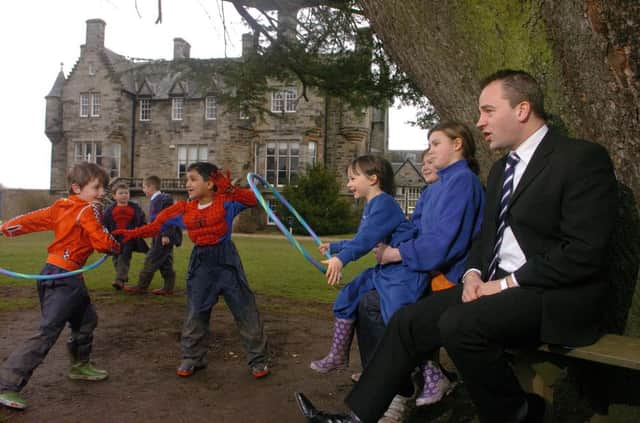Anti-bullying measures risk ‘damaging’ kids


Rod Grant, headmaster of fee-paying Clifton Hall School near Edinburgh, said schools had become “clinically safe”, leaving pupils unprepared for the real world.
His comments come amid growing worry about cyberbullying and abuse being carried out on social networking sites such as Facebook.
Advertisement
Hide AdAdvertisement
Hide AdMr Grant said he was not seeking to downplay the issue, but rather separate real bullying from normal “day-to-day” incidents.
He added: “Bullying is a cancer that can ruin the life prospects, self-esteem and future of those who have suffered systematic and ongoing abuse at the hands of a malevolent intimidator. I would never seek to alter the perception of the very real harm bullying can cause.
“However, the word bullying has been used so much that my fear is that normal day-to-day life is becoming overly sterile in a misguided attempt at providing an almost clinically safe environment that actually may result in future adults being overly sensitive, vulnerable and, in some respects, damaged.”
Last year, research found children with overprotective parents were more likely to be bullied by their peers.
The review of 70 studies looking at 200,000 children suggested parents who “buffered” their children from bad experiences made them more susceptible to being picked on.
Mr Grant said “innocuous situations” such as children not being included in games of hide and seek, or playground squabbles, were now seen by some parents as bullying.
He added: “In many ways these experiences, in isolation, help us to be prepared for a world where not everyone is kind to us, to a world that does exclude and to a world that will not allow each of us to get our own way.
“It is not a popular view these days, but there are times when we should allow children to fight their own battles before we adults wade in, take over and mediate.
Advertisement
Hide AdAdvertisement
Hide Ad“If we always fight their battles for them, children never learn to overcome problems with others and they become reliant on the adults around them. That is really dangerous – for we risk becoming a nation of individuals who are fragile beings, incapable of tolerance, compassion or empathy.
“What we really need is a period of common sense. True bullying is abhorrent and should be dealt with firmly and quickly.”
A Scottish Government spokeswoman said: “We want every child and young person in Scotland to grow up free from bullying and to develop mutually respectful, responsible and confident relationships with other children, young people and adults.
“A key aim of our national approach to anti-bullying is to build capacity, resilience and skills in children and young people, and parents and carers, to prevent and deal with bullying.
“All adults who work in schools have a responsibility to ensure the mental, emotional, social and physical wellbeing of the children and young people in their care.”